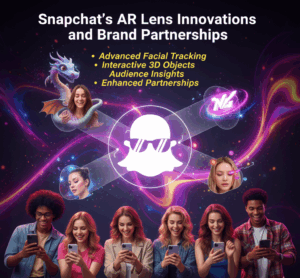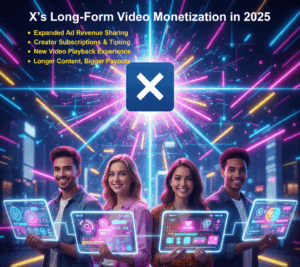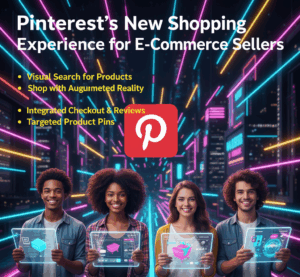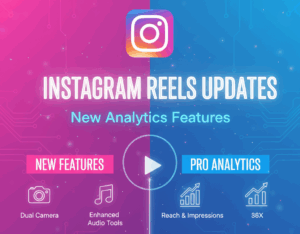Generation Z’s Abandonment of Facebook: What Platforms Are They Spending Their Time On Now?

Generation Z’s Abandonment of Facebook: What Platforms Are They Spending Their Time On Now?
The social networking site Facebook, which was once the most popular site on the internet, has seen a steady decline in its popularity among younger users. For members of Generation Z, the platform is linked with older generations, interfaces that are crowded with too many elements, and a focus on updates that are text-heavy, which seems out of line with their taste for experiences that are visual, fast-paced, and interactive.
The reasons for the exodus of Generation Z from Facebook
Perception of Outdatedness: Considered to be the platform of parents and other family members.
- Content Overload: Too many advertisements, groups, and features make for an experience that seems overwhelming.
- Concerns about Privacy: There is an increasing amount of distrust in the methods of collecting data.
- Favoring Formats That Are More Recent: Their online behavior is dominated by ephemeral material, real-time interaction, and short-form video.
TikTok: The Cultural Epicenter
TikTok has emerged as the most important platform for Generation Z. It functions as a cultural engine due to its music integration, unlimited inventiveness, and algorithm-driven feed. TikTok is more than simply a source of amusement for Generation Z; it also serves as a platform for discovering new trends, goods, and information.
The Visual Dominance of Instagram
Stories and Reels are the two features that are most popular on Instagram, which retains a stronghold among Generation Z. Young users have the ability to create their own unique identities while still keeping up with what is going on in the world, thanks to the way it strikes a balance between aspirational information and informal updates.
YouTube: A Center for Both Learning and Entertainment
For Generation Z, YouTube continues to be an essential platform, functioning as both an educational resource and a source of pleasure. Shorts coexist alongside long-form material, which allows artists and viewers to interact with one another in a variety of ways. YouTube has become an essential part of everyday life because to its tutorials, video blogs, and commentary channels.
The Part that Snapchat Plays in Private Communication
Snapchat continues to prosper as a social networking platform that emphasizes private communication between friends. Generation Z places a high importance on their relationships with others in close-knit groups and on their communications that vanish once they have been sent, since these interactions and messages seem more genuine than publishing publicly. In addition, features such as Snap Map and Discover help to maintain user interest.
Discord: Spaces for Communities and Gaming
When it comes to gaming and other hobbies, Discord is a platform that is often used by those in Generation Z. Niche communities, such as study groups and gaming clans, are encouraged by its server-based structure, which gives members a feeling of belonging and the opportunity to engage in discourse in real time.
The Drive to Achieve Authenticity in BeReal and Other Social Media Platforms
BeReal, albeit being smaller in size, is a reflection of Generation Z’s demand for authenticity. Instagram’s meticulously managed beauty is in stark contrast to its unedited, once-a-day posting approach, which emphasizes the generational shift toward authenticity in digital communication.
Moving Towards Decentralization and Niche Platforms
Certain members of Generation Z are trying out decentralized or alternative platforms, such as Mastodon, or specialized community-driven applications. This is indicative of a need for control and solitude, but it also suggests that there is a preference for areas that are less commercialized and smaller in size.
The Function of Messaging Applications
Although WhatsApp, Messenger, and Telegram continue to be significant communication platforms, Generation Z is increasingly drawn to platforms that integrate messaging with multimedia engagement, making it difficult to distinguish between social networks and chat applications.
Influence on Brands and Marketers
- In order to connect with Generation Z, it is necessary to use techniques that prioritize TikTok.
- When it comes to advertising, being authentic is important. Overt advertisements are not as powerful as spontaneous cooperation.
- Since Generation Z divides their attention across a number of different applications, it is necessary to have a presence on several platforms.
- It is more effective to establish a community than it is to rely on marketing that just goes in one direction.
What This Implies for the Future of Facebook
Facebook continues to be the dominant social media platform among older demographic groups; however, it is becoming less relevant among Generation Z. Meta is attempting to counteract this by making significant investments in Instagram, Reels, and immersive technologies like as augmented reality (AR) and virtual reality (VR). However, until Facebook completely redesigns its user experience, its involvement in the digital lives of people in Generation Z will continue to be insignificant.
The New Digital Landscape for Generation Z
The movement of Generation Z away from Facebook is not a rejection of social media in general, but rather a reorientation towards platforms that are more compatible with the things that matter to them, such as their cultural values, privacy expectations, and creative tastes. As Facebook’s importance in teenage culture continues to decline, it will become more of a background network in 2025, with its relevance being limited to families, communities, and older users. TikTok, Instagram, YouTube, Snapchat, and Discord will take the lead in 2025.




